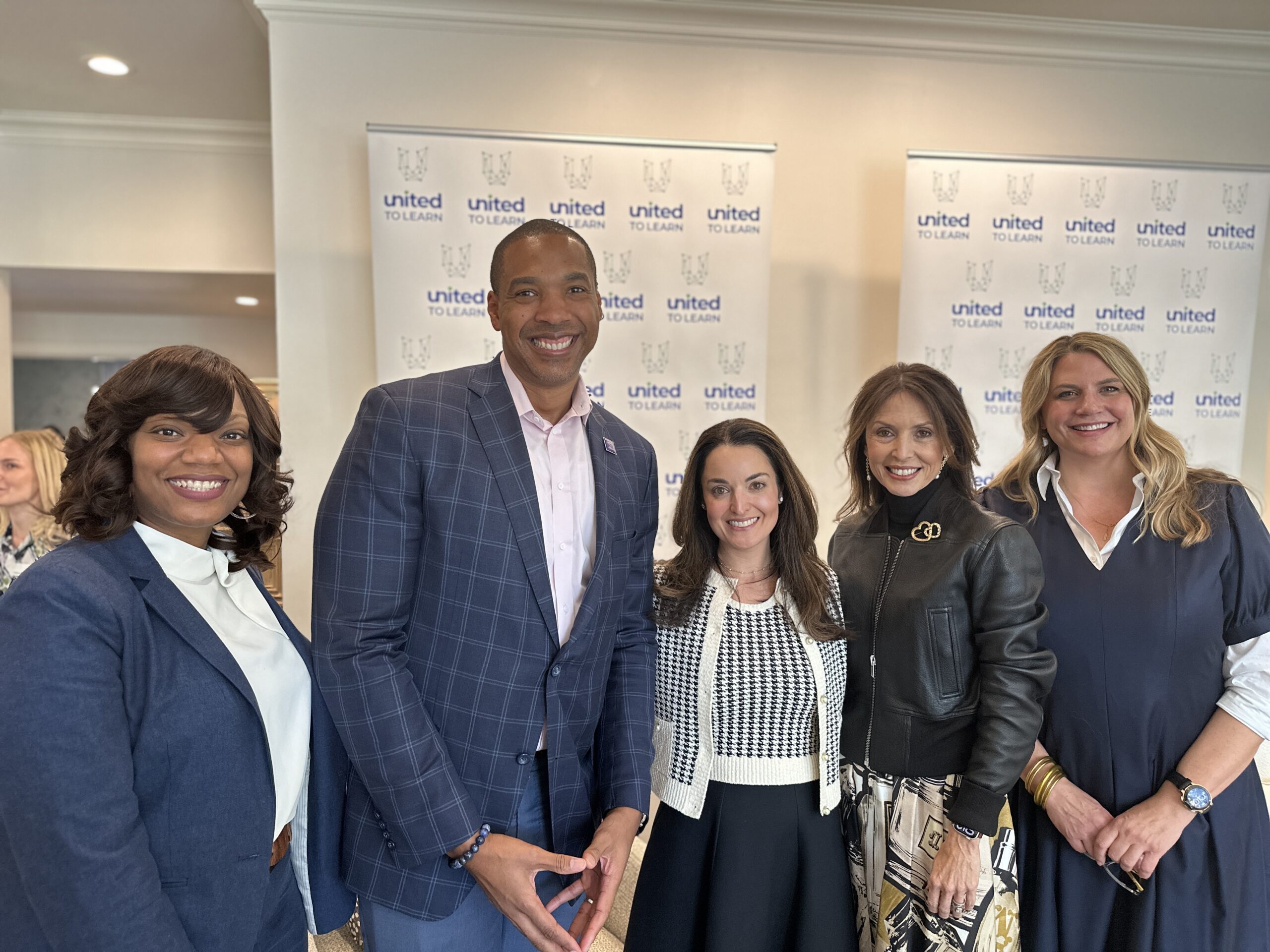
Healthy Learners: The intersection of education and healthcare
A vision for meaningful change and how you can help.
With less than half of Dallas students reading on grade level, how can we help students show up every day ready to learn and pursue long-term success?
Here we share highlights from United to Learn’s Women’s Forum discussion held on January 19. The expert panel discussion featured our moderator, Anne Wicks, the Ann Kimball Johnson Director of Education and Opportunity at the Bush Institute, and panelists Michael Horne, President and CEO of Parkland Health Foundation, and Sharri Zachary, Principal of Elisha M. Pease Elementary School.
Anne Wicks set the stage with the following facts:
48% of Dallas students are not reading on grade level
60% of our students are not on grade level for math
By 2036 about 70% of jobs will require more than a high school diploma
Only 22% of 8th graders are on track to achieve that
We are looking for pathways to opportunity. We hope that our community’s young people will grow to become adults who can support themselves and their families, engage as citizens, and engage with their communities.
Anne asked Michael Horne, President and CEO of Parkland Health Foundation, to let us know what he sees in healthcare and the barriers to access.
He described Parkland Health as more than an 882-bed acute care hospital responsible for Dallas County. It is also part of the premier UT Southwestern teaching hospital system. Many of their patients have no commercial insurance and receive this premier healthcare. He provided some statistics:
21% of Dallas residents lack health insurance
150,000 children in Dallas are experiencing poverty
75% of children living in poverty are Black or Latino
In Ms. Wick’s introduction of Sharri Zachary, she emphasized that Principal Zachary has turned around campuses. Ms. Wicks shared that President and Mrs. Bush and others believe that, “All children can learn and succeed.” Ms. Wicks explained that great educators get adults to make different decisions and do different things for the kids. Principal Zachary, in her success as a principal, has gotten adults to think differently to help students thrive.
Sharri Zachary is the principal at Pease Elementary School in South Oak Cliff. In addition to being a food desert, Dallas’ southern sector has limited access to jobs, transportation, childcare, and healthcare. Many people have jobs that do not offer health insurance. Principal Zachary shared that many households with children in her school may consist of multiple families that share one vehicle, making it difficult for everyone to get where they need to be when unexpected things occur like needing to pick up a sick child from school.
Families want their children to do well. They are seeking ways to overcome barriers. For example. young moms ask her where they can find jobs and support… because they don’t know where to go. She tries to connect parents to resources and notes that sometimes parents might have a link to resources but may need help reading or navigating.
Ms. Zachary mentions the importance of mindset in learning.
Each day Principal Zachary wants to know if her students are safe and well. They start off the school day with music and circle time, an opportunity for children to share how they are feeling. If students are hungry or angry, for example, teachers can provide a snack or assess and assist students with what they are feeling so that everyone can feel safe, well, and in a ready-to-learn mindset.
Mr. Horne indicated that despite the sobering facts discussed there is hope. He highlighted that there are things that are working and innovative private, public, and philanthropic partnerships can be effective ways to remove access barriers.
- Change the healthcare model to bring healthcare resources to families instead of making them travel to it. Examples include data-driven scaled solutions like C.V. Roman Health Center at Red Bird Mall, Crossroads’ nutrition-stable communities, and Dallas ISD’s Student and Family Resource Center South.
- Bridge the gap between physical and mental health. Normalize screenings for mental health just like we do for health and vision. This will help reduce the stigma.
- Improve navigation. Put systems in place to help people navigate their healthcare journey and the resources available.
What can you do to help?
Stepping in where public dollars stop, your support can meet a child’s fundamental need to feel calm, safe, and ready to learn. We can help bring resources like food pantries and care closets that offer a fresh clean uniform, a warm winter coat, or hygiene items. We can help tired teachers with motivational trainings, wellness supports, and tutors to help ensure that every child is set up for long-term success.
Learn how you can invest, volunteer, and advocate with United to Learn.
Additional Resources:
Find A Guide to Reducing Childhood Poverty in Dallas as well as community resources at the Child Poverty Action Lab as referenced by Sharri Zachary, Dallas ISD
Dallas County Community Health Needs Assessment as referenced by Michael Horne, Parkland Health Foundation.
We hope to see you at our next Women’s Forum on Friday, April 12, at the Lamplighter School.